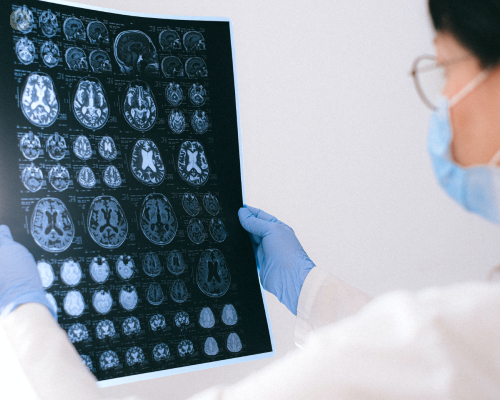Beyond the brainshake: approaches to concussion recovery and prevention
Escrito por:Concussions are a significant concern due to their potential impact on brain function and overall health. These mild traumatic brain injuries can occur in various situations, from sports to everyday accidents, and managing them effectively is crucial for long-term well-being.
Dr Colette Griffin, a leading neurologist, explains the importance of proper concussion management and recovery strategies. She delves into the latest methods for both treating and preventing concussions, highlighting the need for immediate rest, gradual reintroduction to activities, and preventative measures to safeguard brain health.

What are the key steps in concussion recovery?
- Immediate rest and monitoring: the initial phase of concussion recovery involves complete rest. This includes both physical and cognitive rest-avoiding activities that require intense mental effort or physical exertion. It is essential to monitor symptoms closely, such as headaches, dizziness, or nausea, as these can indicate the need for medical attention.
- Gradual return to activity: once symptoms have improved, a gradual return to activities is recommended. This process should be overseen by a healthcare professional. The return-to-play or return-to-learn protocols typically involve a step-by-step increase in physical and cognitive activity, ensuring that the individual does not experience a recurrence of symptoms.
- Medical evaluation: continuous follow-up with a healthcare provider is crucial. They can assess recovery progress and adjust the treatment plan as necessary. In some cases, persistent symptoms might require additional interventions or therapies.
- Rehabilitation: for more severe cases, specialised rehabilitation might be necessary. This can include cognitive therapy to address issues such as memory or concentration problems and physical therapy to manage any balance or coordination issues.
How can concussions be prevented?
- Use of protective gear: in sports and high-risk activities, wearing appropriate protective gear, such as helmets, can significantly reduce the risk of concussions. It is important that the gear is well-fitted and meets safety standards.
- Education and training: educating athletes, coaches, and individuals about concussion symptoms and safe practices can help prevent injuries. Training in proper techniques and awareness of the signs of concussion can reduce the risk of occurrence and promote quicker reporting and management.
- Rule modifications: implementing and enforcing rules designed to reduce the risk of head injuries is another preventive measure. For example, certain sports organisations have made rule changes to limit the impact of head-on collisions.
- Safe practices: in everyday activities, such as driving or recreational activities, practising safety measures can help prevent accidents that might lead to concussions. This includes using seat belts, adhering to traffic rules, and ensuring safe environments for physical activities.
What are the long-term implications of concussions?
- Chronic effects: while most people recover fully from a single concussion, repeated concussions or severe cases can lead to long-term issues such as chronic traumatic encephalopathy (CTE) or persistent post-concussion syndrome. These conditions can affect cognitive function, mood, and overall quality of life.
- Lifestyle adjustments: adopting a healthy lifestyle can support long-term brain health. This includes maintaining a balanced diet, regular exercise, and adequate sleep, all of which contribute to overall cognitive and physical well-being.
- Ongoing monitoring: regular check-ups with healthcare providers can help monitor any potential long-term effects of previous concussions and address them promptly. This proactive approach ensures that any emerging issues are managed effectively.
In conclusion, effective concussion management involves a combination of immediate care, gradual recovery, prevention strategies, and long-term monitoring. By understanding and applying these approaches, individuals can enhance their recovery process and reduce the risk of future concussions.
For a comprehensive discussion on concussion recovery and prevention strategies, schedule a consultation with Dr Colette Griffin through her Top Doctors profile.


